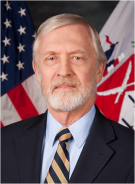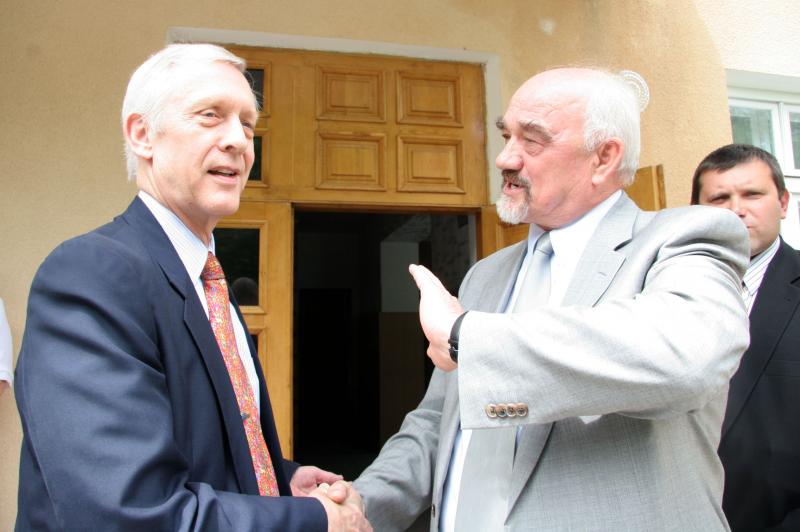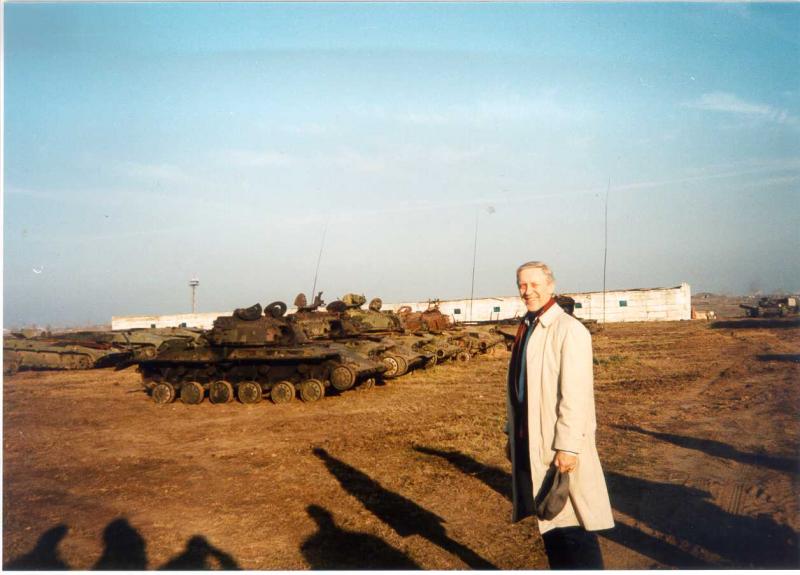William H. Hill

Education: B.A. Harvard University: M.A. Russian History and Soviet and East European Politics, University of California, Berkeley; Ph.D. University of California, Berkeley
William H. Hill is a Professor of National Security Strategy at National Defense University.
When did you first develop an interest in Slavic, East European and Eurasian Studies?
My interest in Slavic studies began when I took Richard Pipes’s undergraduate course on eighteenth and nineteenth century Russian history during my first year at Harvard College, where I had arrived undecided whether to concentrate in history or physics. Pipes made figures like Peter I and Catherine II come alive; by the time we got to the Decembrists, I was hooked. I not only majored in history, but concentrated on Russia. At UC Berkeley I studied Russian history and Soviet and East European politics under Nick Riasanovsky, Martin Malia, Reggie Zelnik, and Andrew Janos while obtaining my doctorate. My dissertation was on Vissarion Belinskii and the development of social criticism under Nicholas I.
How have your interests changed since then?
While completing my dissertation, I spent a year at LGU on the IREX exchange. The U.S. was just opening up a consulate in Leningrad, and I became friends with our diplomats and their families. In the spring, President Nixon visited Leningrad for a day as part of the summit that produced SALT I. The White House advance party was short of Russian  speakers, so they recruited several of the IREX graduate students as interpreters. This experience piqued my interest. A few years later, after reading Chip Bohlen’s memoirs, I asked my best friend from the Leningrad consulate what I would have to do to work on the Soviet Desk. “Join the Foreign Service,” he answered. So I did, just in time to arrive at the Soviet Desk to help fashion the USG response to the Soviet invasion of Afghanistan. I then served in our Embassy in Moscow, doing consular and political work and contact with dissidents. The question then arose: what next, after achieving my initial ambition? I was assigned to Belgrade, learned Serbo-Croatian, and spent the next decade specializing as much in Balkan as Russian affairs. I followed one of my mentors to our CSCE delegation in Vienna in the mid-1980s, supervised Voice of America broadcasts to the Soviet Union and Europe, and oversaw State Department analysis of East Europe during the wars in the former Yugoslavia. I was repeatedly involved with the CSCE/OSCE, so that when the job of Head of the OSCE Mission in Moldova was offered to me in 1999, it seemed a logical next step. The position required both a familiarity with the OSCE and a knowledge of Russia and the post-Soviet space. I ended up spending most of the next seven years in Moldova, with some of the most exciting, rewarding, and frustrating moments in my career.
speakers, so they recruited several of the IREX graduate students as interpreters. This experience piqued my interest. A few years later, after reading Chip Bohlen’s memoirs, I asked my best friend from the Leningrad consulate what I would have to do to work on the Soviet Desk. “Join the Foreign Service,” he answered. So I did, just in time to arrive at the Soviet Desk to help fashion the USG response to the Soviet invasion of Afghanistan. I then served in our Embassy in Moscow, doing consular and political work and contact with dissidents. The question then arose: what next, after achieving my initial ambition? I was assigned to Belgrade, learned Serbo-Croatian, and spent the next decade specializing as much in Balkan as Russian affairs. I followed one of my mentors to our CSCE delegation in Vienna in the mid-1980s, supervised Voice of America broadcasts to the Soviet Union and Europe, and oversaw State Department analysis of East Europe during the wars in the former Yugoslavia. I was repeatedly involved with the CSCE/OSCE, so that when the job of Head of the OSCE Mission in Moldova was offered to me in 1999, it seemed a logical next step. The position required both a familiarity with the OSCE and a knowledge of Russia and the post-Soviet space. I ended up spending most of the next seven years in Moldova, with some of the most exciting, rewarding, and frustrating moments in my career.
What is your current research project?
I left the OSCE in 2006 and returned to academia, spending a year at Georgetown before landing in my present position at the National Defense University in Washington, DC. My time in Moldova ended up providing me with the material for my first major work since my dissertation, Russia, the Near Abroad, and the West: Lessons from the Moldova-Transdniestria Conflict. At present I am on sabbatical at the Kennan Institute, where I have started writing a book on Russia and European security institutions since the end of the Cold War.
What do you value about your ASEEES membership?
During my entire career in academia and government I have remained a member of AAASS/ASEEES. Russia, East Europe, and Eurasia have always been my primary interests, no matter how far I may have strayed intellectually or physically. In particular, I believe that while working in government the substantive knowledge and added understanding I gained by attempting to keep somewhat current through my contacts in the AAASS/ASEEES helped me in interpreting and responding to real world issues and challenges. At this point, after over forty years, I also have many friends in various fields around the globe, all connected via our membership or participation in the ASEEES.
Besides your professional work, what other interests and/or hobbies do you enjoy?
Aside from academics, sports and music have kept me busy and relatively sane in the various corners of the former Soviet empire and beyond. In Leningrad I bought a Soviet  guitar, replaced the seven strings with six from the U.S., and made friends with Russians who wanted to hear and learn American music. I subsequently had bluegrass and country bands that played in Moscow, Leningrad, Belgrade, Zagreb, and Dhaka, Bangladesh. I was part of the infamous “liars vs. spyers” (foreign correspondents against North American diplomats) touch football game in Moscow in the 1980s, and played broomball, hockey, and baseball, when venues were available. The most portable of my sports is tennis, which I have played in every country in which I have lived and which I continue to play enthusiastically, if far less proficiently. And, as I first did in my twenties, I continue to read Russian literature. I am currently working my way through Boris Akunin’s Fandorin novels and stories; to those who like history, travel, and adventure, I recommend them highly.
guitar, replaced the seven strings with six from the U.S., and made friends with Russians who wanted to hear and learn American music. I subsequently had bluegrass and country bands that played in Moscow, Leningrad, Belgrade, Zagreb, and Dhaka, Bangladesh. I was part of the infamous “liars vs. spyers” (foreign correspondents against North American diplomats) touch football game in Moscow in the 1980s, and played broomball, hockey, and baseball, when venues were available. The most portable of my sports is tennis, which I have played in every country in which I have lived and which I continue to play enthusiastically, if far less proficiently. And, as I first did in my twenties, I continue to read Russian literature. I am currently working my way through Boris Akunin’s Fandorin novels and stories; to those who like history, travel, and adventure, I recommend them highly.
